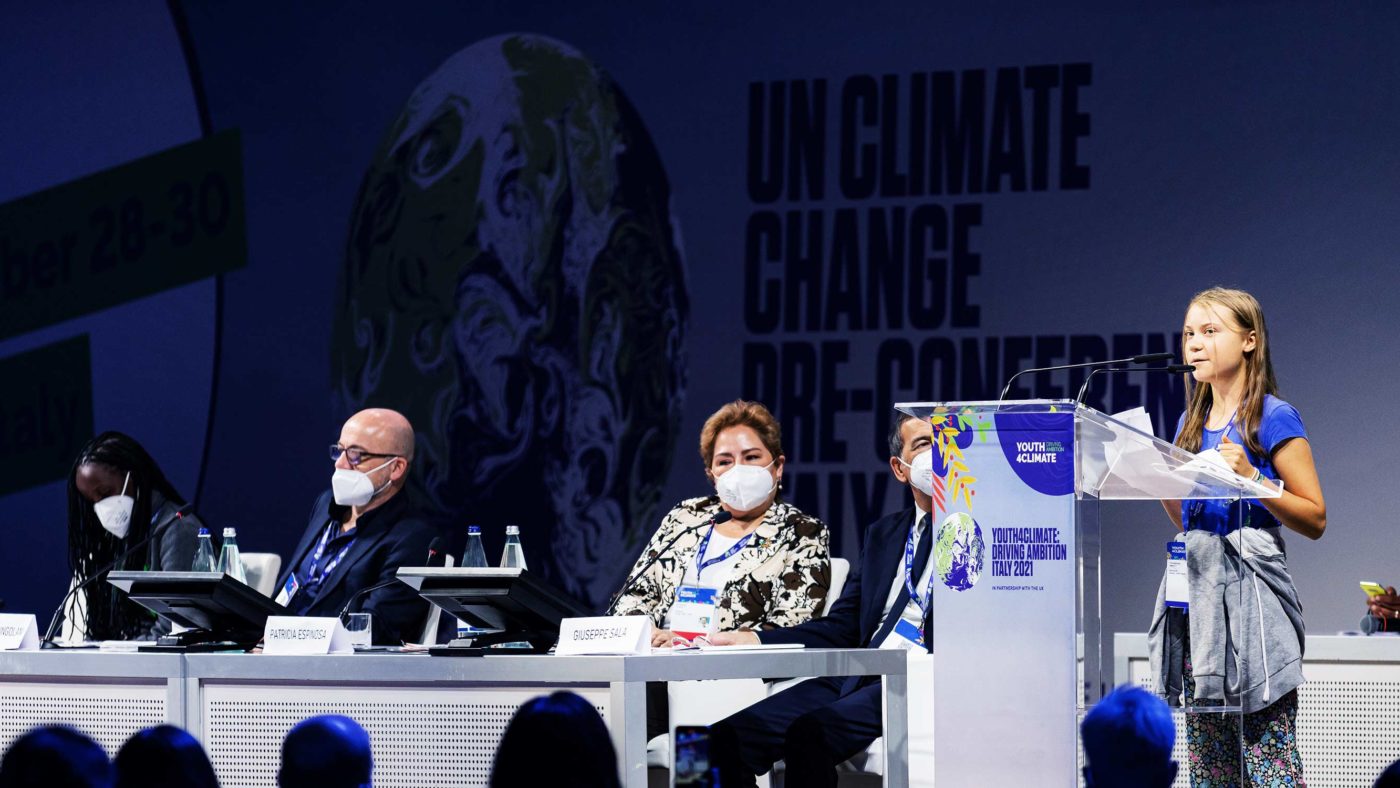My parents recently turned down a lucrative offer to let their handsome basement West End of Glasgow flat (once the home of Roy Jenkins, and briefly featured in HBO’s Succession) to COP26 VIPs. My father took an executive decision, effectively giving the proposal a two-word vernacular rejection. He has no wish to give houseroom to anyone connected to the eco-festival about to descend on his hometown, whatever the reward. He is far from alone.
Gary Smith, leader of the GMB union, and its former Scotland secretary, was not being hyperbolic when he attacked the ‘hypocrisy’ of staging a ‘global jamboree’ costing hundreds of millions in a ‘crumbling’ city with ‘filthy streets and kids go(ing) to school hungry’. The city, whose per head spending has reduced by 11% under the SNP government, has the shortest life expectancy in Scotland with Glaswegians having a 30% chance of dying prematurely. So-called ‘deaths of despair’ (drugs, alcohol, suicide) are a significant factor. First Minister Nicola Sturgeon’s own constituency now has the highest child poverty rate in Scotland.
The physical decline of Glasgow is now starkly, depressingly obvious. The ‘Dear Green Place’ may sound perfect for an eco-conference but the city’s nickname has taken on a bleakly ironic tone, with certain areas essentially rewilding through neglect. Tufts of weeds sprout on Victorian rooftops in the once grand but now dilapidated shopping thoroughfares. Architectural glories, such as Rennie Mackintosh’s twice burned Art School and Alexander ‘Greek’ Thomson’s Egyptian Halls have been left to rot. Local refuse collection has been reduced to just once every three weeks, resulting in fly-tipping and a surge in the rat population.
The blatant hypocrisy of the conference Covid regulations has also provoked anger. Scotland has, at least theoretically, the strictest vaccine passport scheme in Europe and stricter immigration rules than the rest of the UK. But that’s for the ‘sma folk’. The 30,000 or so COP26 delegates will be exempt from all that. Pre-departure testing is supposedly required, but many of the 200 participating countries have no facilities for that, and their delegates will, we learn, be waved through regardless.
And health worries aren’t limited to the coronavirus. The additional pressure of tens of thousands of people rushing in to the city on the already agonisingly stretched local health services could make the situation, to use the environmentalists’ favourite word, unsustainable. Indeed, recently installed health secretary and COP26 cheerleader Humza Yousaf has warned people to expect problems.
As well he might. A man died recently in his Glasgow flat after waiting 40 hours for an ambulance, and such appalling disruption can only persist, or even worsen if that’s possible, if Extinction Rebellion and its offshoots drop by for a sit-in. And that seems inevitable, following Police Scotland’s statement that even unlawful protests will be tolerated ‘to a certain extent’ – as good as an open invitation. What the ordinary people of Glasgow should be expected to tolerate seems to be irrelevant.
And then there are the questions increasingly being asked in the letters pages and comments sections of the Scottish press as to what exactly the point of COP26 is. It certainly won’t feature any debate on the nature, extent, or causes of anthropogenic climate change. That’s all settled apparently. And with ambitious targets for Co2 emissions already declared by most countries, and national budgets exhausted by lockdown, nothing substantial is expected. Tellingly, Xi Jinping, leader of the world’s leading polluter, won’t even be attending.
COP26 has the look and feel of a religious rather than a scientific/political event, a ritual, rather than a meaningful forum. The invitation of the Pope, whose visit to the UN-managed ‘blue zone’, would at least have given scope to Glasgow’s humourists, hardly signaled a willingness for free and open debate. His Holiness has cancelled, but no doubt will send his blessing and find the nature of the discourse, likely to be akin to the recitation of the liturgy, wholly familiar. No sceptics, or, for that matter, representatives of the 100,000 Scots whose livelihoods depend on the oil and gas industry, will get past security.
Latter day saint Greta Thunberg is expected, but may for once find herself somewhat at odds with her legions of youthful acolytes. There are more school strikes planned in Glasgow during the conference, under an anti-COP ‘actions not words’ banner. One of its likely leaders, 19-year old student Anna Brown, told The Scotsman: ‘It’s hard to have hope for something that has constantly failed. It’s really just the status quo. We’ve had all these COPs and nothing has happened’.
But the show will go on, seemingly because, no matter how convenient and efficient Zoom is, it cannot instill the sense of righteous convocation of an in-person gathering. Nor can it provide the majestic riverside stage with the scenic backdrop, before which the great and the good can pose for the global media, showing us all how great and how good they are.
The images emerging from COP26 will no doubt be impressive and the declarations will sound resolute and determined to the watching and listening world, with the rubbish-strewn streets and decaying infrastructure of a once great city safely out of sight, and its dissenting voices well out of earshot.
Click here to subscribe to our daily briefing – the best pieces from CapX and across the web.
CapX depends on the generosity of its readers. If you value what we do, please consider making a donation.


